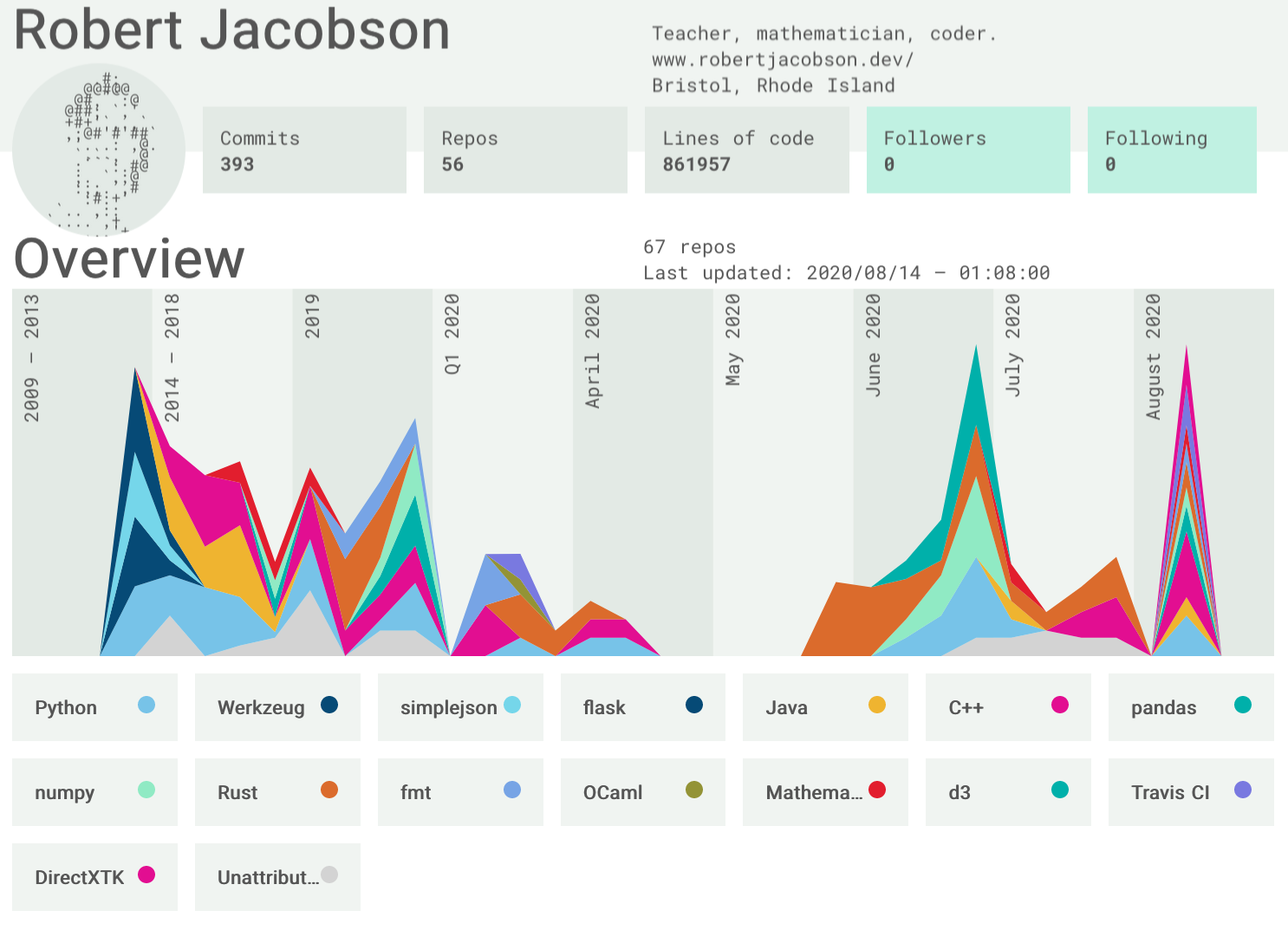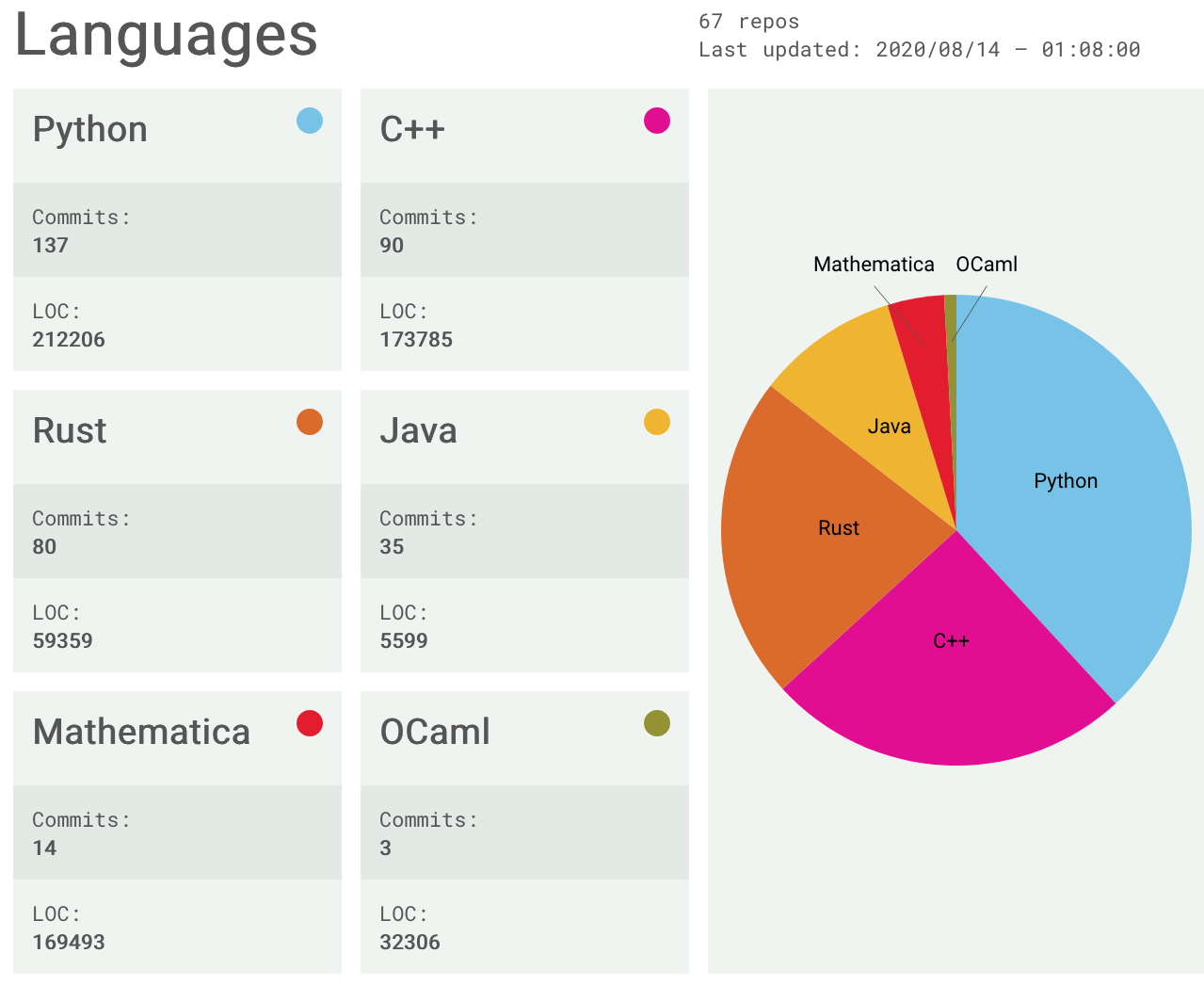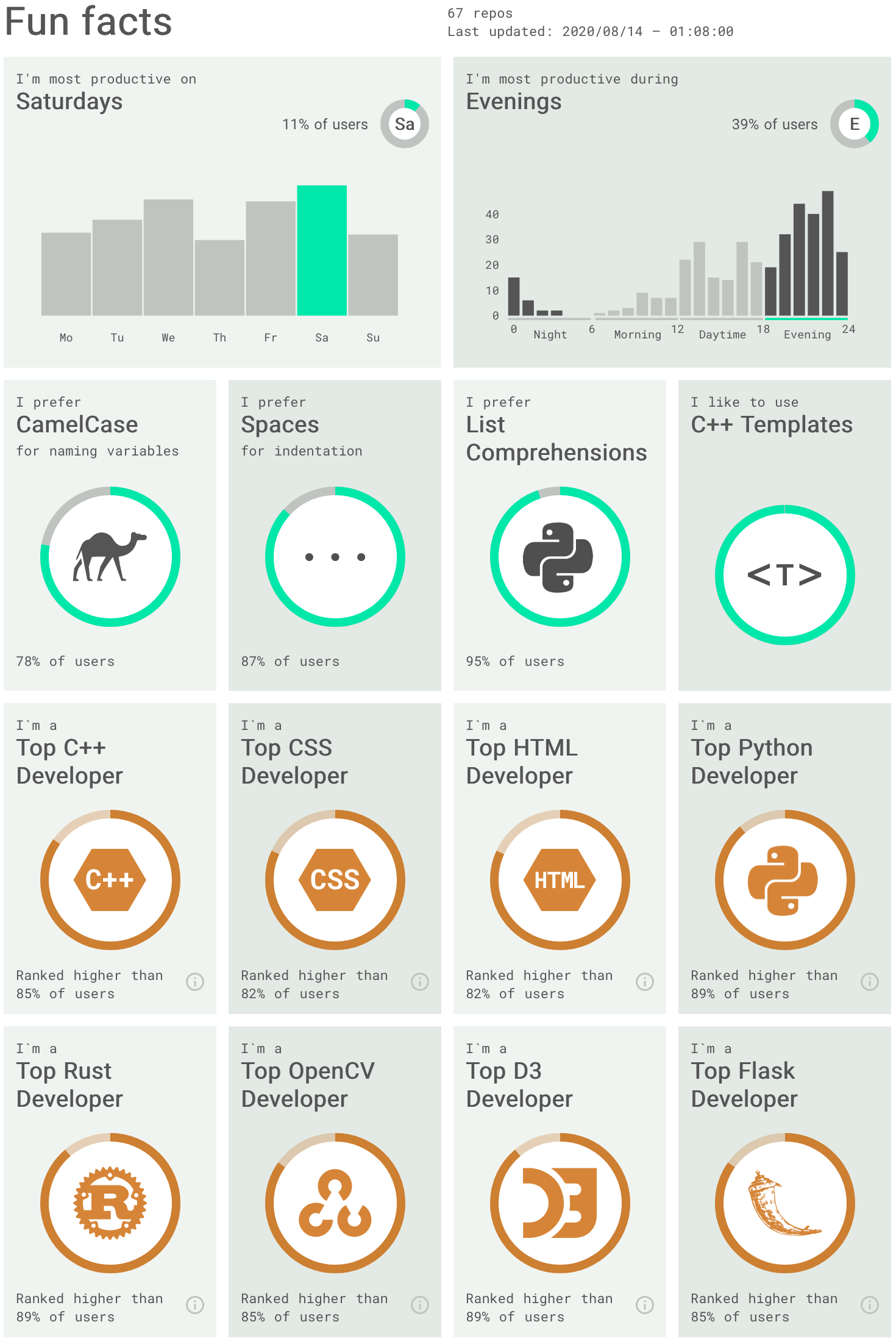I am an R&D-oriented computer scientist, mathematician, and software engineer with broad experience. I have particular interests in compilers, programming languages, and virtual machines; computer vision and machine learning; and algorithm design and mathematical programming.
I am currently serving the Center for Forecasting and Outbreak Analytics at the Center for Disease Prevention and Control as an employee of Peraton.
| Resume | Jacobson_cv.pdf |
| LinkedIn Profile | www.linkedin.com/in/robertljacobson/ |
| GitHub | github.com/rljacobson (Right here!) |
| Blog | www.robertjacobson.dev |
| [email protected] |
 |
State of the art expression pattern matching using technology from Maude in the Rust library Mod. |
 |
Keeping enterprise networks secure with AI at Vectra. |
 |
Loris: A term rewriting system and computer algebra system based on sophisticated pattern matching algorithms. |
 |
Fighting to eradicate ransomware with artificial intelligence at Halcyon Tech, Inc. |
 |
A lot of COVID-19 stuff. I laser cut a few hundred face shields for local healthcare workers. I did a little math about sample pooling one afternoon. After seeing it, my marine biologist friend and collaborator convinced me I needed to write an online demo so nonscientists can see the benefits for themselves, then also an article on a mathematical mistake being made by many public health officials which has serious consequences: “Bayes’ Theorem and the Deathly Hallows.” We coauthored a less technical version for nonscientists titled, “COVID-19: Population Testing vs. Thoughts and Prayers?.” Nobel laureate Paul Romer had this to say about it:  |
 |
Fighting the international trade of illegal wildlife with the Nature Intelligence System I helped create. |
 |
A Prolog implementation as part of a tutorial series about writing automated theorem provers and the language⟷mathematics correspondence. Work in progress. |
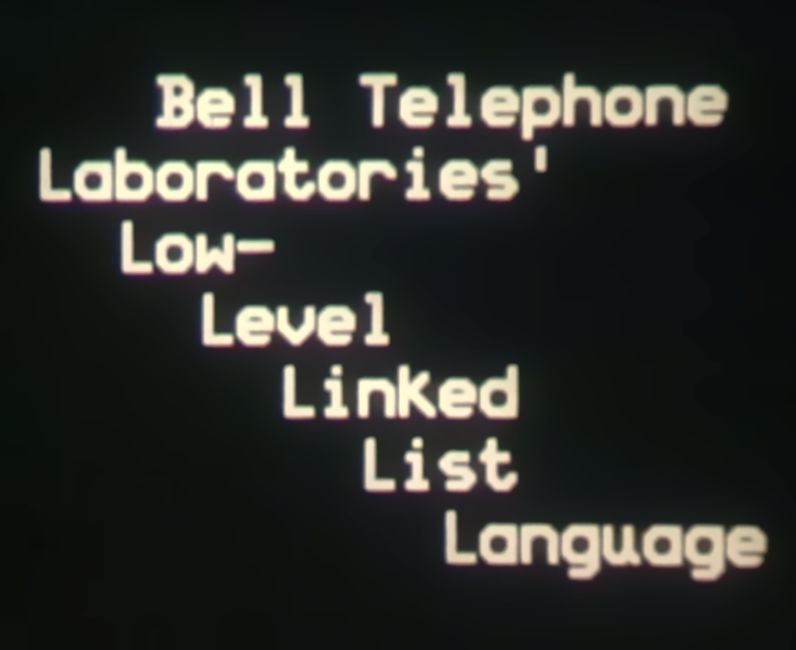 |
Elsix: An implementation of L6, Bell Laboratory's Low-Level Linked List Language, originally designed and implemented by Kenneth C. Knowlton in 1965 for the IBM 7094 computer at Bell Labs. This language has fallen into obscurity and to my knowledge has no extant implementation. But you have to check out this original state-of-the-art (for the time) demo: The L6 Programming Language, Rendered in Stunning Early Computer Graphics |
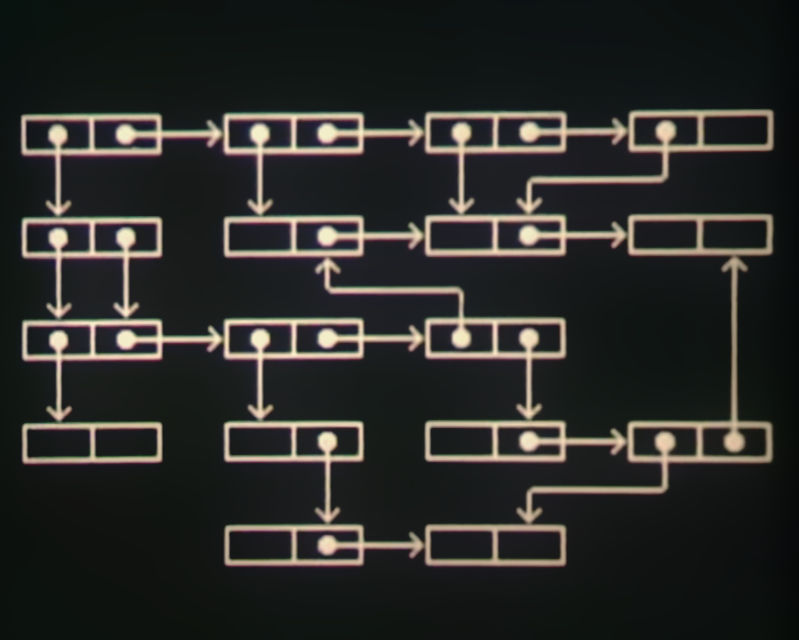 |
Reflex: A rewrite of RE-flex in rust. RE-flex is a source compatible, modern C++ replacement for the venerable flex lexer generator written by Robert van Engelen. The original flex program by Vern Paxson is itself a rewrite of lex, a unix program written by computing pioneer Mike Lesk and an obscure intern named Eric Schmidt. |
Ask me about what I’ve been learning recently!
Last year I started keeping a log of "interesting things" I read, learn, or discover. It's a peek into the storm inside my brain.
Also, things that I work on but not in the last few months:
FoxySheep: A parser for Wolfram Language (Mathematica) ❂ Levenshtein: A blazingly fast Levenstein-Damarau edit distance function for MySQL ❂ Wolfram Language Specification: An independent attempt at describing the entire language
This is what Sourcerer.io says about my development directory as of mid August 2020. It is not entirely accurate. I am certain I have more C++ code than reported, but I have never used DirectXTK.
Project Smurd: My adventures learning electronics and reverse engineering the TARDIS keyboard.
ONE of the following is a lie:
- I once got a thank-you letter from the United Nations.
- I redesigned the TRS-80 using modern SMD components.
- I almost got into a fight with Stephen Wolfram, but Steven Pinker intervened. We all remain good friends to this day.
- I went out on a dinner date with Lawrence Lessig's graduate research assistant.
- I went out on a dinner date with Lawrence Lessig.
- I've worked with a lifelong friend of Prince William, the second in line to the British throne (but I won’t tell you who).





